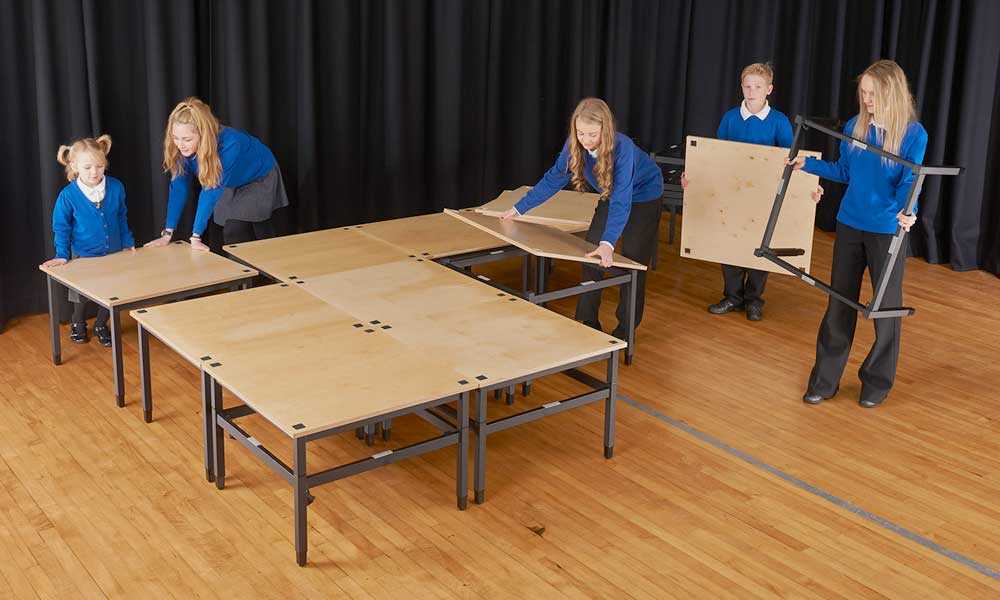In the evolving landscape of event planning and performance arts, the need for staging solutions that are both flexible and user-friendly has become increasingly apparent. Debut stages stand at the forefront of this shift, offering a modular staging solution that marries lightweight design with unparalleled ease of use.
Designed for portability and compact storage, these stages mark a significant departure from traditional, cumbersome staging solutions, setting a new standard for efficiency and convenience.
Unmatched Lightweight Design
The essence of debut stages lies in their lightweight, modular design. Unlike traditional stages that often require a team to set up, these stages can be easily handled by a single person, making them a go-to choice for venues where time and labour are at a premium.
Each module is crafted to fit together seamlessly, providing a sturdy, reliable platform without the bulk and hassle of conventional stages. This ease of assembly and breakdown not only saves valuable time but also reduces the physical strain on staff and volunteers, making it an ideal solution for a wide range of events and venues.
Safety and Durability Combined
Safety and longevity are paramount in the design of these stages. Each component is engineered with safety features such as safe-grip tops for enhanced traction, reducing the risk of slips and falls during performances or events. Lower step heights set at 170mm ensure accessibility for all users, including children and those with mobility issues, without sacrificing the stage’s integrity or performance.
Despite their lightweight nature, these stages are built to withstand the rigours of regular use, ensuring that they remain a durable, safe choice for any setting.
Flexibility Meets Efficiency
The design philosophy behind these stages centres on the principle of flexibility meeting efficiency. Traditional staging solutions, with their fixed structures and heavy materials, limit the ability to adapt to different spaces and event types. In contrast, lightweight stages offer a modular approach, allowing for quick configuration changes to suit any venue or performance requirement.
This adaptability, combined with the ease of a one-person setup, significantly reduces the logistical challenges often faced with event staging. Whether expanding the stage for a large performance or downsizing for an intimate gathering, the modular design ensures that the right fit is always achievable without the need for extensive labour or time investments.
Versatility Across Venues
Lightweight stages shine in their ability to serve a multitude of venues with unparalleled versatility. From primary schools where children can participate in the setup, to professional hotel conference suites requiring quick turnaround times, these stages adapt effortlessly.
The lightweight form factor and modular design mean that transport through narrow corridors or storage in limited spaces is no longer a challenge. For community centres, churches, and drama groups, the ease of configuration and mobility facilitates a wide range of activities, from theatrical performances to choir recitals. Moreover, the tiered height options enhance visibility and presentation quality, ensuring every performance is delivered to its fullest potential.
In the world of staging solutions, lightweight stages stand out for their innovative design, offering unmatched flexibility, safety, and ease of use. They represent a forward-thinking choice for venues seeking to elevate their event experiences with minimal fuss and maximum efficiency.

